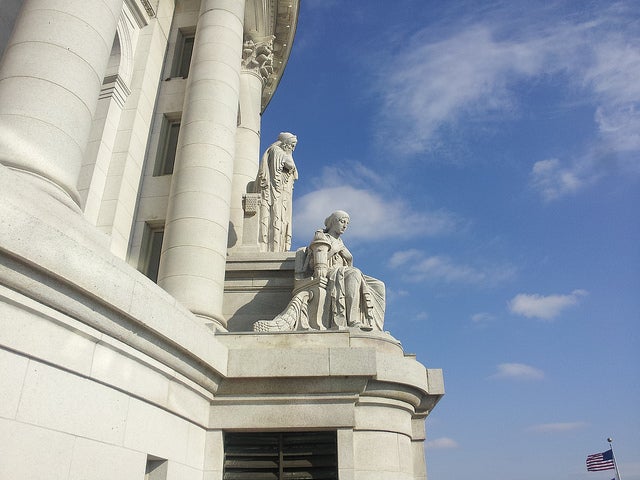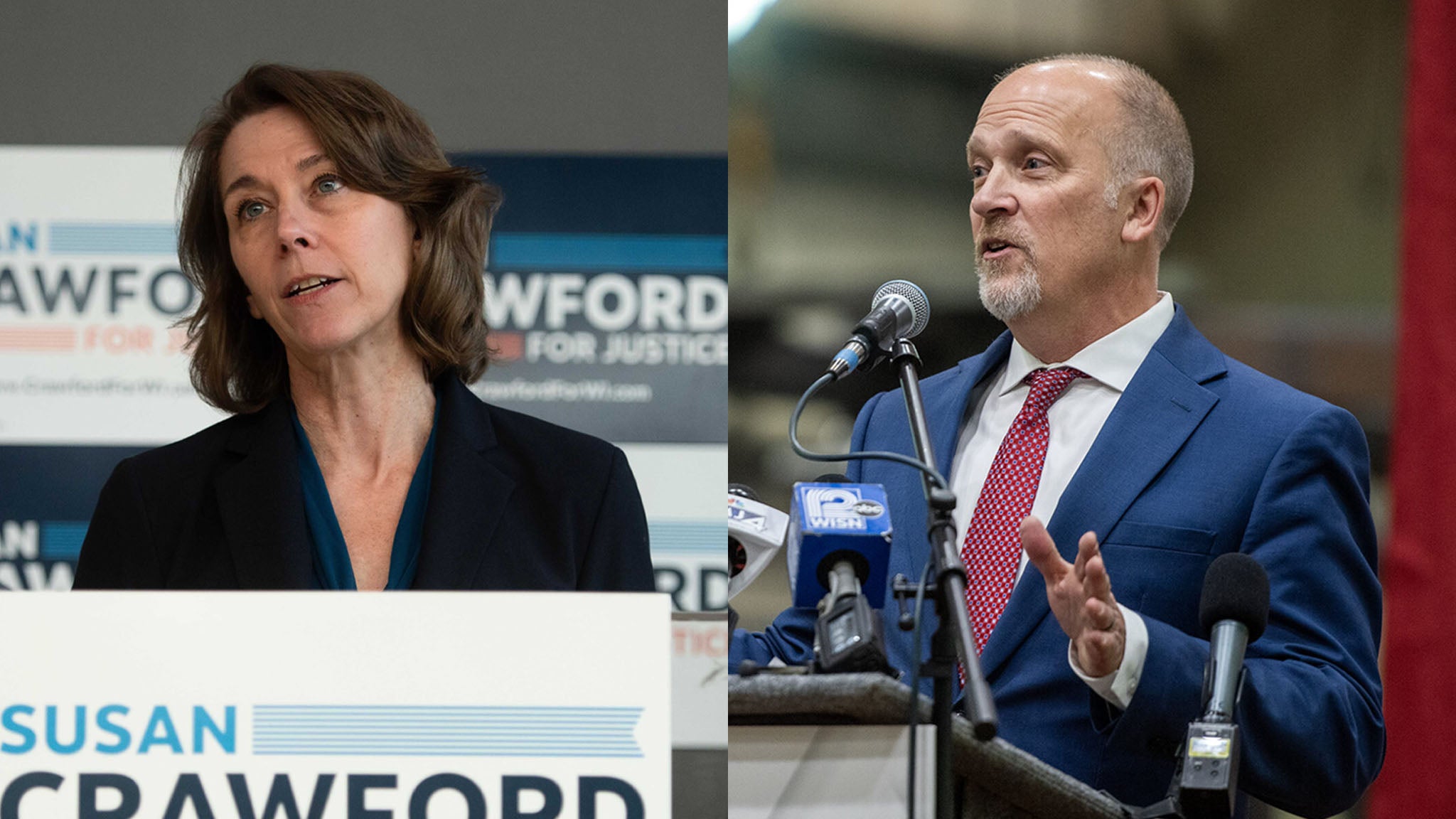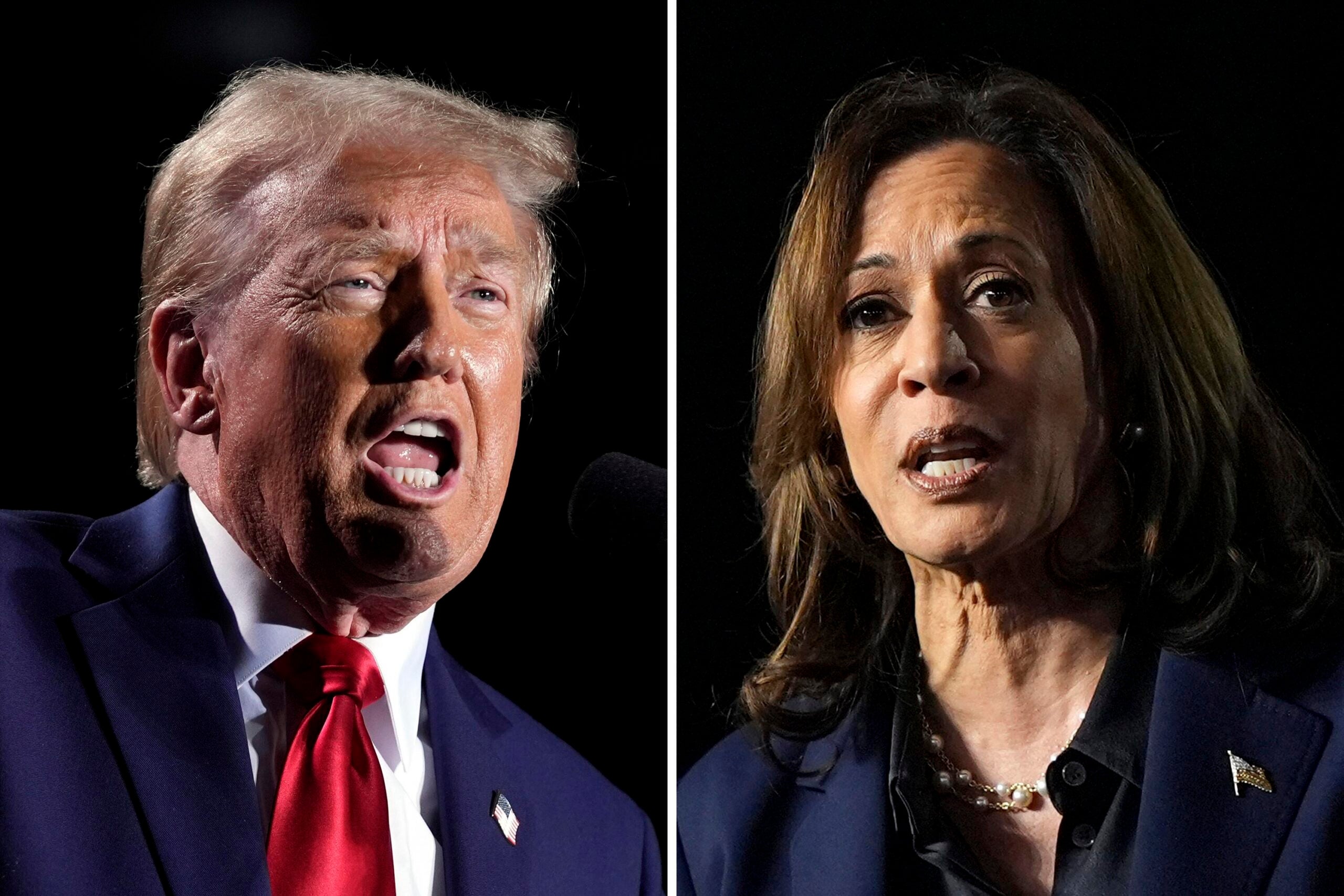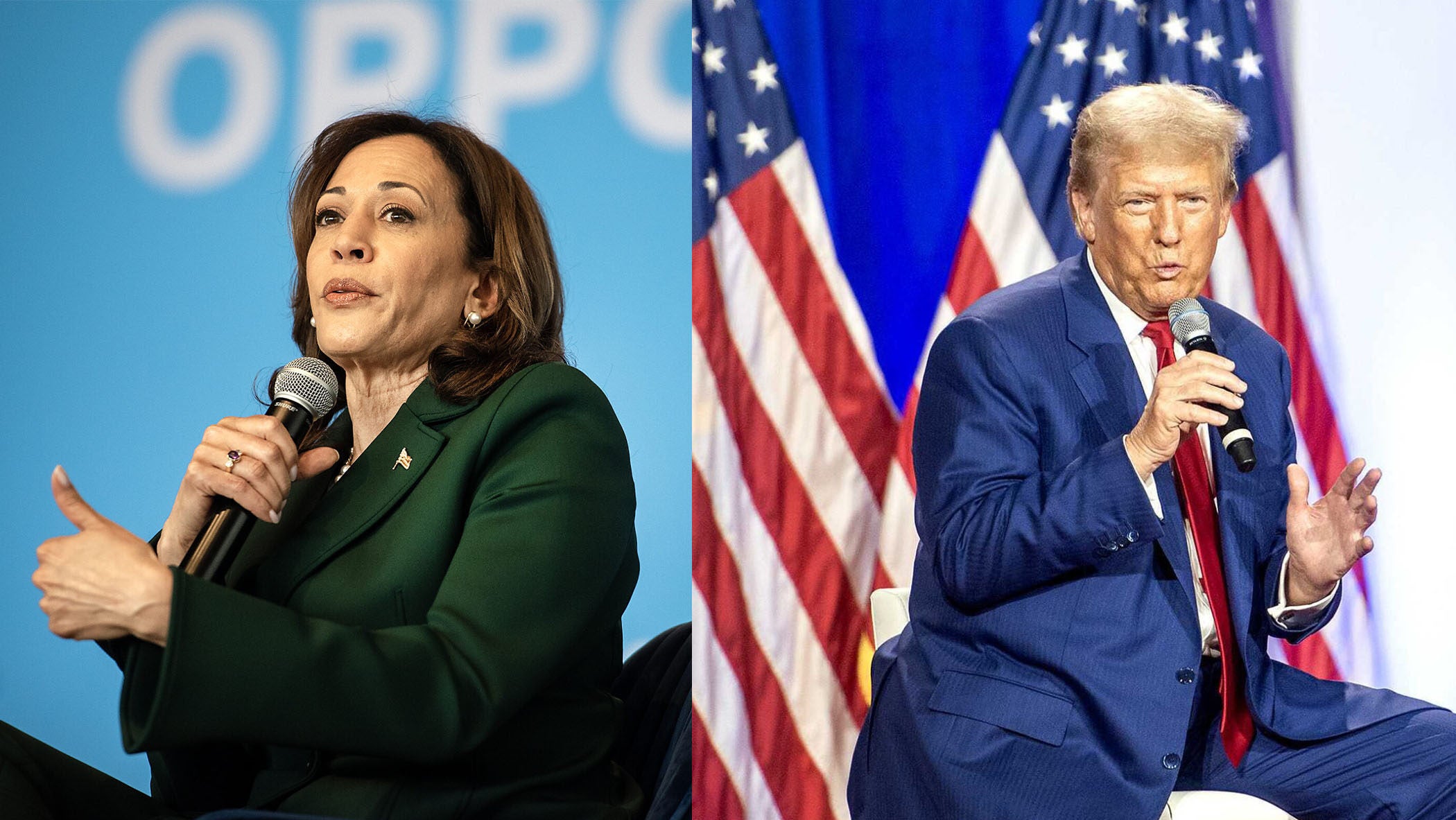Marquette University’s latest poll shows Wisconsin voters are skeptical of the state’s incentives package for tech giant Foxconn.
But at least so far, those negative impressions haven’t spilled over to Gov. Scott Walker or President Donald Trump, the two politicians most closely connected to the Foxconn Technology Group deal.
It was the first time Marquette had asked statewide voters about Foxconn since Walker signed the roughly $3 billion incentives package last year. When paired with local incentives, the deal could eventually pay Foxconn roughly $4.5 billion if it hits capital investment and job creation benchmarks.
Stay informed on the latest news
Sign up for WPR’s email newsletter.
When Marquette asked voters statewide whether the deal was worth it, 49 percent said the state was paying more in incentives than it would get back from Foxconn, 38 percent said state would at least break even and 13 percent said they didn’t know.
When statewide voters were asked whether the Foxconn deal would benefit businesses close to them, only 25 percent said yes compared to 66 percent who said no. On that question, 8 percent said they didn’t know.
Marquette University Law School pollster Charles Franklin said that skepticism, coupled with other findings that show voters think only the Milwaukee region will benefit, were likely the most important findings of the survey.
Franklin said they illustrated what’s been described as the “politics of resentment” among voters who don’t live in the state’s largest cities.
“I think that’s an important public policy question, aside from the politics of it,” Franklin said. “That is a big problem for how the state spends its money.”
The Marquette poll interviewed 800 registered voters from Feb. 25 through Thursday and had a margin of error of plus or minus 4.5 percentage points.
Trump, Walker Hold Steady
Despite some misgivings over Foxconn, public opinion didn’t move much on Walker or Trump, who announced the Foxconn deal last summer.
Walker’s approval rating held steady with 47 percent approving of his job, while 47 percent disapprove. When Marquette last polled in June 2017, Walker’s numbers were 48-48.
When asked about Trump, 43 percent approved of the job he’s doing, while 50 percent disapproved. That’s up from 41-51 last June.
“The president has basically stabilized or blipped up a point or two,” Franklin said.
When voters were asked how they felt about the direction of the state, 53 percent said they thought the state was headed in the right direction, while 44 said it was on the wrong track. That was nearly identical to last June when the split was 53-42 percent.
Walker’s Democratic Challengers Still Unknown
This was also the first time Marquette asked public opinion on Walker’s potential Democratic challengers in the governor’s race.
The biggest takeaway was the entire field remains mostly unknown.
Large majorities of voters said they hadn’t heard enough about nine of the candidates to form opinions about them, and when Democratic voters were asked who they’d support in the August primary, most said they didn’t know.
Among those who did express a preference, 18 percent favored Superintendent of Public Instruction Tony Evers, giving him the best case at claiming front-runner status.
But while the overall Marquette poll interviewed 800 registered voters, the number of respondents who said they’d vote in the Democratic primary is just 318.
That meant Evers’ apparent lead was well within the survey’s margin of error.
The other eight Democrats running for governor were clustered more closely together, with Madison Mayor Paul Soglin placing second, followed by former state Democratic Party Chair Matt Flynn, activist Mike McCabe, state Sen. Kathleen Vinehout, D-Alma, firefighter Mahlon Mitchell, state Rep. Dana Wachs, businessman Andy Gronik and former state Rep. Kelda Roys.
A much larger number – 44 percent – said they didn’t know who they’d vote for in the Democratic primary for governor.
US Senate Race Challengers Struggle To Be Recognized
Democratic U.S. Sen. Tammy Baldwin’s approval dropped slightly in Marquette’s March survey, but like Walker, her potential challengers also struggled to get recognized.
Asked what they thought about Baldwin, 37 percent had a favorable opinion compared to 39 percent with an unfavorable opinion. In Marquette’s June 2017 survey, Baldwin’s numbers were 38-38.
But Baldwin’s potential Republican challengers — Marine Kevin Nicholson and state Sen. Leah Vukmir, R-Brookfield — remained unknown with most of the voting public. A total of 85 percent said they did not know enough about Nicholson to have an opinion, while 83 percent said the same thing about Vukmir.
When the survey was narrowed to likely Republican primary voters, 28 percent favored Nicholson compared to 19 percent for Vukmir and 49 percent who said they didn’t know.
Just 243 likely Republican voters were surveyed, which placed Nicholson’s lead well within the poll’s margin of error.
Voters: Can‘t Form Opinion On Supreme Court Candidates
Voters also didn’t know much about the candidates for Wisconsin Supreme Court, who will face off in a statewide election April 3.
When asked about Milwaukee County Judge Rebecca Dallet, the candidate favored by Democrats, 77 percent didn’t know enough about her to form an opinion. When asked about Sauk County Judge Michael Screnock – the candidate favored by Republicans – 81 percent didn’t know enough to form an opinion.
Among those who did know the candidates, 14 percent had a favorable opinion of Dallet compared to 9 percent who had an unfavorable view. Screnock’s numbers were more even, with 10 percent viewing him favorably compared to 9 percent who viewed him unfavorably.
Wisconsin Public Radio, © Copyright 2025, Board of Regents of the University of Wisconsin System and Wisconsin Educational Communications Board.




